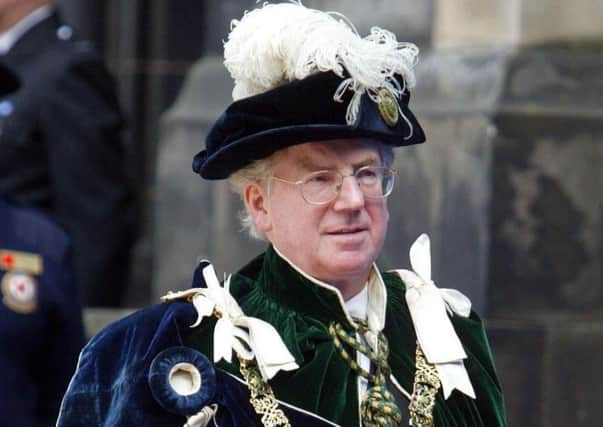Obituary: Lord Sutherland of Houndwood, academic, philosopher and architect of Scotland's free personal care system


Stewart Sutherland was an exceptionally bright youngster whose formidable intellect took him from modest Aberdeen council house roots to university vice-chancellor, architect of free personal care and a seat in the House of Lords.
In between he rose through academia as a distinguished philosopher of religion and guided an enormous array of organisations with a mild-mannered touch that belied an ability to make a difference.
Advertisement
Hide AdAdvertisement
Hide AdMost notably, he was the Chief Inspector of Schools for England and Wales and founder of Ofsted in the early 1990s and when the subsequent Blair government set up a Royal Commission on the Care of the Elderly, he was chosen as its chair.
Its recommendation that all nursing and personal care should be provided free by the Government was dismissed south of the Border amid a split over its cost. But he welcomed the later decision by the devolved Scottish Government to take up the initiative, which has been championed as a flagship policy.
Stewart Ross Sutherland, one of only 16 Knights of the Thistle, Scotland’s highest order of chivalry bestowed personally by the Queen, grew up in Aberdeen’s Hilton Drive. He was the son of a commercial traveller in drapery, George Sutherland, and his wife Ethel, a buyer at Aberdeen’s Isaac Benzie’s department store, and attended the local Woodside Primary School where he became dux.
From there he went to the city’s Robert Gordon’s College, where he was also dux and, with the help of a bursary, went to Aberdeen University, graduating with a first class MA in Philosophy.
He also gained an MA from Corpus Christi College, Cambridge. He had earlier considered a career in the ministry but instead went straight into academia as an assistant lecturer at the University College of North Wales in Bangor in 1965.
As his career progressed he moved to Stirling University as lecturer and reader, and then to King’s College London, as professor of history and philosophy of religion, where he later became titular professor, vice principal and finally principal from 1985-1990. He also wrote widely on issues of faith and philosophy and during this period his publications included: Atheism and the Rejection of God; The Philosophical Frontiers of Christian Theology; God, Jesus and Belief; Faith and Ambiguity and The World’s Religions.
From 1990-94 he was vice-chancellor of London University from 1990-94, a period that encompassed his tenure, from 1992, as Chief Inspector of Schools when he commissioned an inquiry into the declining popularity of science and authored part of the Dearing report concerning teacher education and training.
On returning to Scotland in 1994 he took up the post of vice chancellor of Edinburgh University, where he remained until 2002. Having been knighted in 1995, he was made a life peer in 2001, taking his title from the Borders village of Houndwood where he lived, and was a regular attender at the House of Lords, sitting on its Science and Technology committee from December 2003-2010.
Advertisement
Hide AdAdvertisement
Hide AdSutherland, who once claimed that his career was “a portfolio existence – a bit of this, a bit of that”, had wide-ranging interests in public life and doctorates and fellowships from all over the world. He had been president of the Saltire Society and the Royal Society of Edinburgh, of Alzheimer Scotland, Scottish Care, The David Hume Institute and the Royal Institute of Philosophy. He was also chairman of the Associated Board of the Royal Schools of Music and a member of the British Academy.
He enjoyed jazz – he was a member of Ronnie Scott’s Jazz Club in London – and was a keen hillwalker, returning every summer with friends to the area in the Cairngorms where he had been a deerstalker as a student.
He also collected Tassies, portrait medallions created by the Scottish artist and gem engraver James Tassie.
He is survived by his wife Sheena and their children Fiona, Kirsty and Duncan.
ALISON SHAW